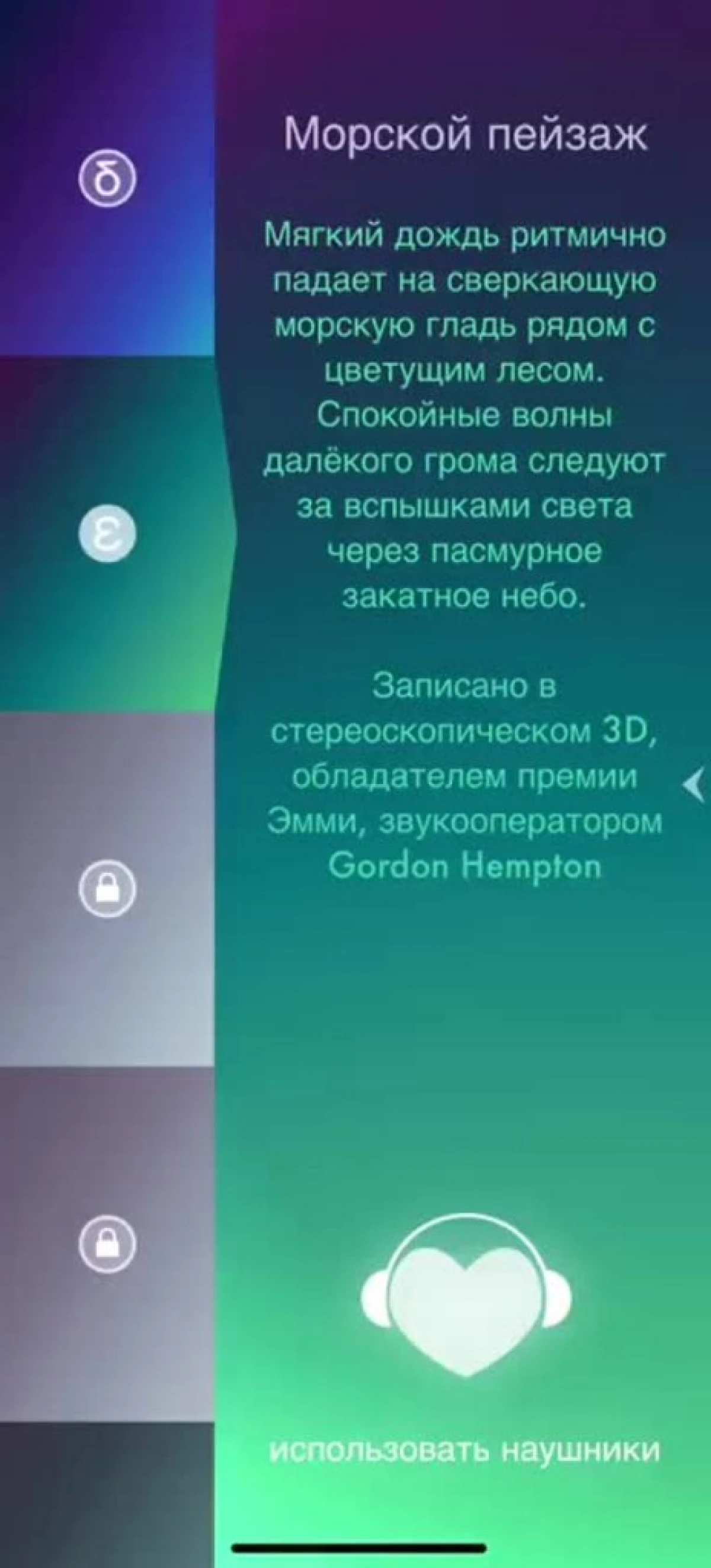What experts think about services that choose music for relaxation and concentration.
How to work applications that "help" music
In September 2020, the service for generating a sound background Endel received $ 5 million of funding: in total during the work, the company attracted $ 6.2 million investment.
The application creates musical accompaniment for different situations: to concentrate attention, rest or training. In Endel, it is said that the service takes into account the weather, the location of the user, heartbeat and activity during the day.
Endel is not the only solution on the market that creates musical paths for different scenarios. An application for meditation, focusing and falling asleep Calm in April 2020 was downloaded by about 3.9 million people. In 2019, about 2 million people paid for him. The total investment in the project from 2012 is $ 143 million.

The Focus @ Will site with 2 million users also offers users to get rid of irritating noise using nature sounds, piano or electronic bits selected for a specific situation.
In addition to services that personalize music, there are applications where the user chooses that the white noise coming. For example, Thunderspace and Relax Rain contain advanced sounds of summer rain, sea breeze or unexpected thunderstorms.

The cost of the monthly subscription to the applications varies from 299 rubles from Endel to 1350 rubles from Calm. Disputes on the subject of the effectiveness of such services continue - they also have supporters, and opponents in the scientific community.
Research on the dependence of music and concentration of attention
Music during monotonous and dynamic workIn 1972, the scientists of the University of Birmingham held a series of experiments: the subjects checked spare parts on the conveyor to the music and without it.The researchers found out that background compositions improve performance during monotonous work. In 1994, scientists of the University of New York came to Buffalo, who studied the impact of music to work surgeons.
There is another opinion: the experiment of the Florida Atlantic University showed that when listening to instrumental music and songs, students wrote more slowly than in silence.
Music in the process of memorizing informationIn 2007, researchers of the University of Glasgow Caledonian found that people better remember information in silence than even the most unobtrusive songs. A nine years later, a Japanese scientist Tahakiro Tammes also told about the decline in cognitive functions while listening to music.
The study of German scientists from 2010 proves that background music prevents memorizing information while reading, but improves the mood and sports indicators during training.
At the same time, scientists of Mildsek University proved that background music can improve cognitive abilities - if it changes and programmed in real time. Music for the experiment "wrote" the program Koan Plus.
According to scientists, the composition of the composition was based on the Japanese Buddhist philosophy, and the melody itself was meditative. Those who listened to music from Koan Plus during testing answered more questions - unlike participants who answered questions for the computer in silence.
In 2014, the scientists of the University Clinic Hamburg-Eppendorf found out that white noise could improve the learning process and memorizing information from the elderly with memory violations. Unobtrusive sound background also helps to memorize new words to healthy young people and returns concentration to children with attention deficit syndrome.
In 2019, the University of Californian University in San Francisco conducted an experiment with Meditrain meditation applications (no outdoor). Experiment participants used the program for six weeks: they began to remember the information and concentrate attention.
What do psychotherapists and musical therapists think about services
In 2014, Christian Jarette, editor of the British psychological society blog and cognitive neurologist, criticized Focus @ Will in a wired column. He accused the creators of the facts and the introduction of users in confusion.
Daria Varlamova, a journalist and the author of the book about mental disorders of the inhabitants of large cities "crazy to go", for some time I used Focus @ Will, but the results, according to it, were unstable. "Sometimes I helped me, and sometimes it is not very. I still do not know whether this placebo effect was or really acted, "she says.
The psychologist Evgeny Dashkova from time to time uses Noisli application to concentrate attention and recommends it to customers. She believes that in this way it is possible to return efficiency, only if a person is in a relatively stable state - "does not fall from fatigue and not hungry." According to Dashkova, such services can help people with attention deficit syndrome.
The influence of the music on the mental state of a man is studied separate science - music therapy. It is considered an auxiliary health profession and works as an additional method in neurology, pedagogy and psychotherapy.
According to the musical therapists of Alice April and Maria Pakos, now applications cannot replace work with a specialist, but they will be able to achieve this partially after some time - not without human assistance.
Maria Pakosh says that its colleagues use in GarageBand and similar applications in which musical instruments simulators can be used.
There are both "unloading rooms" 5D with virtual reality technology, which help to relax elderly people with dementia and employees after a difficult day. Pakosh refers to new technologies wary.
How experts return concentration
According to Evgenia Dashkova, it is primarily to deal with a decrease in operability help not applications, but maintaining the regime of labor and recreation. "Healthy sleep is at least 7.5-8 hours a day, go to bed to 12 nights, three- or four-time nutrition, physical activity, full-fledged weekend," she explains.
With the recommendations of Dashkova, the psychotherapist Alexey Karachinsky agrees: to increase the concentration of attention, it also advises the Pomodoro method. This technique suggests an alternation of 25 minutes of intensive work with 5-10 minutes of rest. She also recommends Daria Varlamov.
Alice April attention is returned to run and contemplation of nature, and Maria Pakos helps breathing practices, dancing and singing.
# Attention # music
A source
